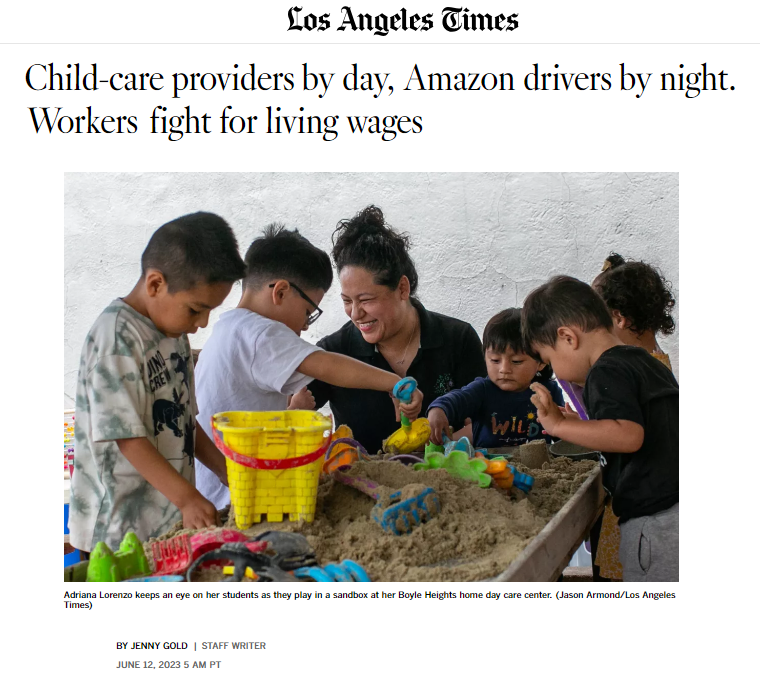Fighting for fair pay, increased access, and respect are just a few of the reasons child care providers and advocates are rallying at the state capital on June 15. The rally led by Child Care Providers United and Education Workers United unions comes on the heels of Governor Gavin Newsom’s recent delay of funds for 20,000 new child care slots next year.
The pandemic revealed just how essential child care providers and early educators are in the lives of families. Yet little improvement has been made in the way of financial supports and child care access. The Unions point out that the governor’s May revise only provides an 8% cost-of-living raise, compared to providers’ requests for a 25% increase in child care subsidy reimbursement rates. Providers, who are largely women of color, are among the lowest income earners in our nation’s economy. The average annual salary for a family child care provider in California is just $27,000, which for a family of four is below the state’s poverty rate. Providers are demanding a new rate structure that includes all operating costs and ensures they receive up to 100% of the true cost of care.
Providers are also demanding funds for health care and professional development, as well as retirement benefits and paid time off. Low wages paired with a lack of benefits leads to instability in the care space, which creates a shortage of child care options for working families.
The third demand is for increased access to quality, affordable child care for all working families. The Unions note that there are about 1.5 million children who are eligible for state subsidies who go without services. Providers are calling for increased funding for more child care vouchers and an end to family fees. Expanded access also means additional care options for families in need of weekend and evening care. Providers believe options could be expanded by increasing pay for providers who offer these services.
This Prenatal to 5 Fiscal Strategies report found providers have long struggled to survive on pay rates that meet just 25-30% of their current costs to provide quality child care. “The majority of family child care providers in California are Black and Brown women and the disrespect for their essential work is rooted in a racist, anti-Black and anti-immigrant history that has diminished providers’ role as educators, undervalued their work as caregivers, and promoted a system of low wages and poor working conditions for decades,” the Unions said in a joint statement.
CCRC is advocating for these bills:
Assembly Bill 596 and Senate Bill 380 aim to improve the method of calculating subsidy payment rates for child care and development services, and California state preschool program services. These rate bills have been added to the priority list for the legislative women’s caucus this year.
Assembly Bill 51 would enhance and expand the state’s mixed delivery system as increased access to universal-Transitional Kindergarten expands. It also works to ensure children and families have access to resource and referral services to know about their options in the mixed delivery system that best meets their needs, as well provides information about developmentally appropriate learning programs.
Follow CCRC’s social media accounts for updates. Read the story from the Los Angeles Times, which quotes CCRC in its report about child care workers’ fight for better wages.



